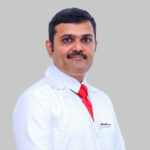
Why Do Women Get Varicose Veins?
Varicose veins are a common condition that affects many women. They are swollen, twisted veins that appear on the legs and can be painful, itchy and unsightly. Varicose veins are swollen, twisted veins that you can see just under the surface of the skin. Although they can occur anywhere in the body, they are most commonly found in the legs and feet. Women are more likely than men to develop varicose veins, and there are a variety of factors that can contribute to their development.
Women are more susceptible to developing varicose veins than men, but why is that?
In this blog, Dr. Sumit Kapadia, renowned senior Vascular & Endovascular and Vein Specialist from Aadicura Superspeciality Hospital, Vadodara, Gujarat, India explains the causes of varicose veins in women, the symptoms they can cause, and the treatments that are available for Varicose Veins in women.
What Causes Varicose Veins in Women?
Varicose veins in women can be caused by a variety of factors including hormonal changes during pregnancy, hormonal contraceptives, menopause, genetics, aging, obesity, prolonged standing or sitting, and trauma. The hormonal changes can cause the veins to relax and become more susceptible to swelling, while the increased pressure on the legs from obesity can also contribute to their development. A family history of varicose veins may also increase a woman’s likelihood of developing them. So there are several factors that can increase the likelihood of a woman developing varicose veins.
These include:
Pregnancy:
Pregnancy can increase the likelihood of developing varicose veins due to the increased pressure on the legs and the hormonal changes that occur.
Hormonal Contraceptives:
Hormonal contraceptives, such as birth control pills, can contribute to the development of varicose veins by affecting the way veins work and increasing the likelihood of swelling.
Menopause:
During menopause, the decrease in estrogen levels can cause the veins to become less elastic, making them more susceptible to swelling and becoming twisted.
Genetics:
As mentioned earlier, genetics can play a role in the development of varicose veins. If a woman has a family history of varicose veins, she may be more likely to develop them herself.
Also read: What is the Cost of Sclerotherapy in India ?
Aging:
As you age, the valves in your veins can become less effective, making it easier for blood to pool in the veins and cause them to become swollen and twisted.
Weight:
Being overweight or obese puts additional pressure on your veins and can contribute to the development of varicose veins.
Lack of Movement:
Sitting or standing for long periods of time can put a lot of pressure on your legs and can contribute to the development of varicose veins.
Trauma:
Injuries or other types of trauma can also contribute to the development of varicose veins.
Hormonal Changes:
Hormonal changes can affect the way veins work and contribute to the development of varicose veins. For example, during pregnancy, the increased levels of progesterone can cause the veins to relax and become more susceptible to swelling.
Varicose Veins Treatment for Women
Treatment for varicose veins depends on the severity of the condition and the symptoms experienced by the individual. Some common treatments include:
Compression stockings:
Compression stockings are designed to help improve blood flow and reduce the symptoms of varicose veins.
Lifestyle changes:
Making changes to your lifestyle, such as losing weight, exercising regularly, and avoiding standing or sitting for long periods of time, can help prevent varicose veins from getting worse. A regular habit of keeping legs elevated at night is very useful to reduce the discomfort and swelling.
Also Read: Does Smoking Cause Varicose Veins?
Sclerotherapy:
This is a minimally invasive procedure in which a doctor injects a solution into the affected vein, causing it to collapse and eventually disappear.
Endovenous Laser Therapy (EVLT):
This is another minimally invasive procedure in which a laser is passed into the vein via a small needle hole and is used to seal the affected vein, causing it to collapse and eventually disappear. There are newer techniques now available including glue, MOCA & steam ablation of varicose veins.
Surgery:
In severe cases, surgery may be required to remove the affected veins.
Conclusion
Varicose veins are a common condition that affects many women. There are several factors that contribute to the development of varicose veins in women, including hormonal changes, heredity, age, obesity, and prolonged standing or sitting. Treatment for varicose veins depends on the severity of the condition and the symptoms experienced by the individual and can include compression stockings, lifestyle changes, sclerotherapy, EVLT, and surgery. If you are experiencing symptoms of varicose veins, it is important to consult a vascular doctor for an accurate diagnosis and treatment plan.
Vascular and endovascular doctors have a deep understanding of the anatomy and physiology of the blood vessels, which makes them well-suited to diagnose and treat varicose veins, deep vein thrombosis, and other venous diseases. They also specialize in treating diseases of the aorta, carotid artery, iliac artery, renal artery, limb ischemia, and more.
Dr. Sumit Kapadia is a renowned senior Vascular & Endovascular and Vein Specialist available at Aadicura Superspeciality Hospital, Vadodara, Gujarat, India for treatment of varicose veins, Dr. Sumit Kapadia (Vascular Doctor) is also actively involved in research, developing new treatments and techniques for Varicose Veins in women. He has treated more than 15000 women suffering from varicose veins in the past 18 years.
Follow us on YouTube

MBBS, MS, MRCS, DNB-Fellow
Dr. Sumit Kapadia
Dr. Sumit Kapadia / MR KAPADIA SUMIT a gold-medalist from Baroda Medical College, obtained his general surgical training and senior residency from SSG Hospital, Vadodara.

MBBS, MS, MRCS, DNB-Fellow
Dr. Sumit Kapadia
Dr. Sumit Kapadia / MR KAPADIA SUMIT a gold-medalist from Baroda Medical College, obtained his general surgical training and senior residency from SSG Hospital, Vadodara.




